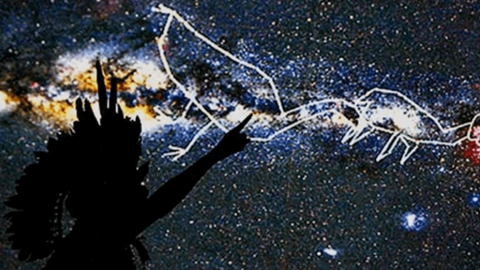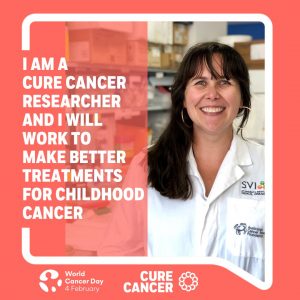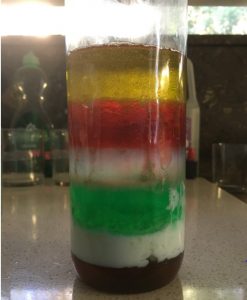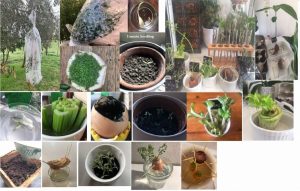Science Update – Deep Blue: innovation for the future of our oceans

This year the Science Week theme is ‘Deep Blue: innovation for the future of our oceans’. Australia’s vast oceans are at the heart of the energy, food and economic future of our country. Their value to all Australians is matched only by the enormous economic and environmental wealth afforded us by this national asset.
Students were introduced to the Science Week Theme with a summary from the One World One Ocean Campaign entitled ‘Why the Ocean?’. This enabled staff to integrate the impact of the ocean into the current curriculum. The Annual Science Week Quiz was run for both staff and students.
Many students embraced the Education Perfect Science Competition, with encouragement and support from Ms Megan Vu, which continues until the end of August. Several students have attained some impression results; 37,282 questions were answered and 11 Awards achieved, so we await the final result. Three students also participated in the Science Olympiad Examinations. Rhea Werner, Year 8, completed the two-hour Junior Science Olympiad Examination on Friday 21 August. An impressive effort of preparation and endurance given the heavy online school week. Emily Dziedzic and Gloria Meng also completed the two-hour Chemistry Olympiad Examination after school on Tuesday 25 August. In preparation for this National Qualifying Examination, Emily and Gloria participated in the University of Melbourne and Chemistry Education Association Training Program at the University’s Chemistry department for two hours over fourteen weeks. The Science Faculty wish these students every success.
 For the first time the Hartung Lecture was conducted on online. The lecture was delivered by Dr Jessica Holien entitled ‘Part of being a scientist is not just inventing things but also being able to help people’. The Hartung Youth Lectures aim to inspire students in Years 9 -12 and promises to be an engaging and educational experience, in the tradition of the lectures given by Professor Hartung over 50 years ago. Dr Holien discussed her career pathway but was unable to present the usual experimental work as she was also in lockdown and away from her lab. The impact of COVID-19 has resulted in the cancellation of many planned activities. The Science Assembly will be held in the first week of September. The faculty would like to thank the students who gave generously of their time on the last day of school before lockdown to make this possible.
For the first time the Hartung Lecture was conducted on online. The lecture was delivered by Dr Jessica Holien entitled ‘Part of being a scientist is not just inventing things but also being able to help people’. The Hartung Youth Lectures aim to inspire students in Years 9 -12 and promises to be an engaging and educational experience, in the tradition of the lectures given by Professor Hartung over 50 years ago. Dr Holien discussed her career pathway but was unable to present the usual experimental work as she was also in lockdown and away from her lab. The impact of COVID-19 has resulted in the cancellation of many planned activities. The Science Assembly will be held in the first week of September. The faculty would like to thank the students who gave generously of their time on the last day of school before lockdown to make this possible.
 Staff have been actively engaging students in a variety of curriculum-based activities. Ms Wendy Stevens, the Senior Laboratory Technician, has been recording experiments for staff to use in group work with their students. Mrs Anita Fernando has organised in conjunction with Ms Stevens the next round of experimental kits for Year 7 Science Honours which enables interactive experimental work at home. The students have been completing the Australian Science Teachers’ Association SPECTRA or Science Program Exciting Children Through Research Activities Award. Images of their work, such as a constructing a density column and determination of pH are shown. Ms Virginia Midgley has continued to maintain the Year 7 St Catherine’s Science and Sustainability through Plants Program (SSSP) through experimental work online with the students. Year 7 were required to send an image of their seedlings.
Staff have been actively engaging students in a variety of curriculum-based activities. Ms Wendy Stevens, the Senior Laboratory Technician, has been recording experiments for staff to use in group work with their students. Mrs Anita Fernando has organised in conjunction with Ms Stevens the next round of experimental kits for Year 7 Science Honours which enables interactive experimental work at home. The students have been completing the Australian Science Teachers’ Association SPECTRA or Science Program Exciting Children Through Research Activities Award. Images of their work, such as a constructing a density column and determination of pH are shown. Ms Virginia Midgley has continued to maintain the Year 7 St Catherine’s Science and Sustainability through Plants Program (SSSP) through experimental work online with the students. Year 7 were required to send an image of their seedlings. 
Ms Charlotte O’Malley has joined the faculty this term and seamlessly transitioned to online teaching. Ms Sue Macgeorge has organised three online activities – an online bioinformatics activity to create a phylogenetic tree to demonstrate the relatedness between Eucalyptus species with Agriculture Victoria Research – a program delivered by GTAC (Gene Technology Access Centre) to investigate programmed cell death (apoptosis) by relating the concept to skin cancer, and how the success of various drug therapies can be determined at the cellular level, and an online version of a DNA manipulation activity run by the University of Melbourne.
I attended an online Indigenous Astronomy in Australia presentation as part of the Indigenous Science Experience with Kirsten Banks, Trevor Leaman and Bob Fuller, the National Indigenous Science Education Program (NISEP) Team. This was an excellent opportunity to understand the Aboriginal perspective of star formations. Staff have continued to rewrite curriculum content to meet the demands of online teaching. The innovation and adaptability of the Faculty has led to an invitation from the VCAA to write and develop curriculum for Years 7-10 Physics. A great team of Ms Megan Vu, Mrs Anita Fernando, Mr Stephen Brown and Mr Fiachra Barry led by myself will complete this project by December.
The collaborative nature of the Faculty has enabled the sharing of many ideas, resources, innovations and technology whilst online. I thank the Science staff, Mr Fiachra Barry (Years 7 and 9 Science, Year 12 Physics), Mrs Kelly Brady (Year 8 Science, Year 12 Psychology), Mr Stephen Brown (Years 7 and 8 Science, Year 10 and 11 Physics), Mrs Anita Fernando (Year 9 Science), Ms Sue Macgeorge (Year 10 and 12 Biology), Ms Virginia Midgley (Years 7 and 8 Science, Year 11 Biology), Ms Charlotte O’Malley (Year 9 Accelerated and Year 11 Psychology), Ms Wendy Stevens, Thuy Nguyen and Ms Megan Vu (Year 8 Science, Year 10 and 11 Chemistry) for their ongoing support of staff and students, and for the many hours spent on Microsoft Teams assisting students and staff.


